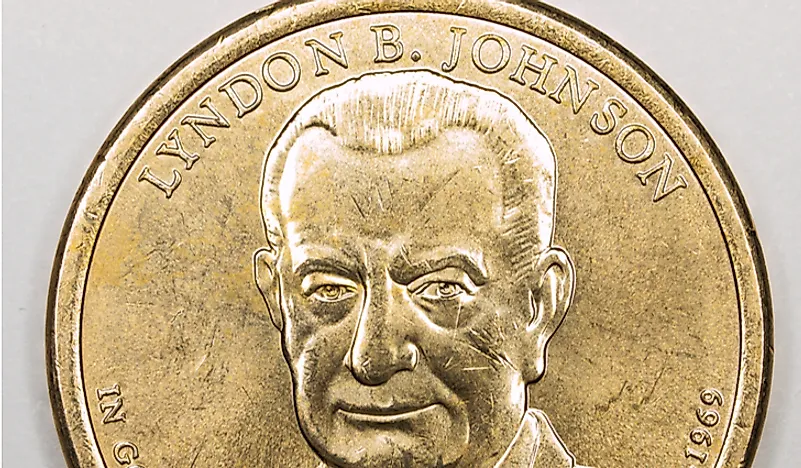Lyndon B. Johnson - US Presidents in History

5. Early Life
Lyndon Baines Johnson, often referred to as "LBJ", was born on August 27th, 1908, in Stonewall, Texas to a family of farmers. He went to Johnson City High School, and showed interest in student politics. He graduated from high school at the young age of 15. After working at several temporary jobs, he enrolled in college in 1926, and decided to become a teacher. During his years at SWTSTC (now Texas State University), Johnson engaged in many activities that had profound influences on his later political career. He edited the school newspaper, participated in campus politics, and, most importantly of all to him, he taught Mexican-American children at a segregated school, an experience that made him dedicated to promoting equal opportunity for education throughout the country, a dedication that carried over to when he became U.S. President. After graduation, Johnson became an instructor at Sam Houston High School in Houston, teaching Public Speaking courses.
4. Rise to Power
Johnson's teaching career did not last, as he entered politics soon after. Starting in the 1930s, he became involved in Texas state politics for several years, after which he decided to run for Congress and was elected to the U.S. House of Representative in 1937, though he lost a bid for a Senate seat in the election in 1941. While serving in the House of Representatives, Johnson was appointed to the rank of Lieutenant Commander in the U.S. Naval Reserves in 1940, and he was sent to the Southwest Pacific in World War II. After returning, he decided to run for Senator again, and was successfully elected in 1948. He was reelected in 1954 and, since the Democrats had a majority in the Senate, Johnson became the Majority Leader. His success in the Senate caught John F. Kennedy's attention, and Kennedy later was nominated, with Johnson as his Vice Presidential candidate. Kennedy and Johnson won the Presidential Election in 1960 over Republican Richard Nixon. After Kennedy was assassinated in 1963, Vice President Johnson was then sworn in as the 36th U.S. President. He maintained his position after he won the Presidential Election of 1964 over Barry Goldwater.
3. Contributions
Johnson is most known for his positive contributions to domestic policy. He was dedicated to make the U.S. a country with extensive welfare programs for those in need, and he was also persistent in combating racial discrimination and inequality. Johnson signed the landmark Civil Rights Act of 1964, which formally outlawed discrimination based on race, color, religion, sex, and national origin. In the process, the legislation ended unequal application of voter registration requirements, as well as racial segregation in schools. He also installed the "Great Society Program", pushing for increased financial aid to education, an attack on poverty, and the rise of Medicare and Medicaid, as well as urban renewal and conservation programs. It was also during his Presidency that the U.S. first sent astronauts to the moon in December of 1968.
2. Challenges
Although Johnson successfully pushed through a series of reforms in domestic policy, internationally he was in deep crisis, caused in large part by his commitment to the Vietnam War. Despite Johnson's efforts to end Communist aggression, the war continued and was even magnified. Seeing Communism as a genuine threat to the U.S., he also approved widespread bombing assaults on North Vietnam as an attempt to end the war earlier, but his orders caused a public outcry at home, and people started to organize large anti-war demonstrations and protests, and riots also broke out across the nation. Large military expenses also took money away from his Great Society programs, and public pressures ultimately forced his hand in withdrawing his decision to run for reelection.
1. Death and Legacy
Johnson's health gradually deteriorated from the onset of the 1970s, and he was ordered by doctors to maintain strict diet. He was diagnosed with diverticulosis, and his heart's condition was determined to be too weak to allow a surgery to be carried out. Johnson died of a heart attack at his Texas ranch on January 22nd, 1973. A state funeral was held for him three days later. Although his involvement in the Vietnam war complicated his image, Johnson is remembered mostly as a protector of, and believer in, civil rights for all. His contributions to education, equal provisioning of civil rights, ending racial segregation, and affordable medical services have had profound impacts on U.S. society that are still felt and a aprreciated a half-century later.











